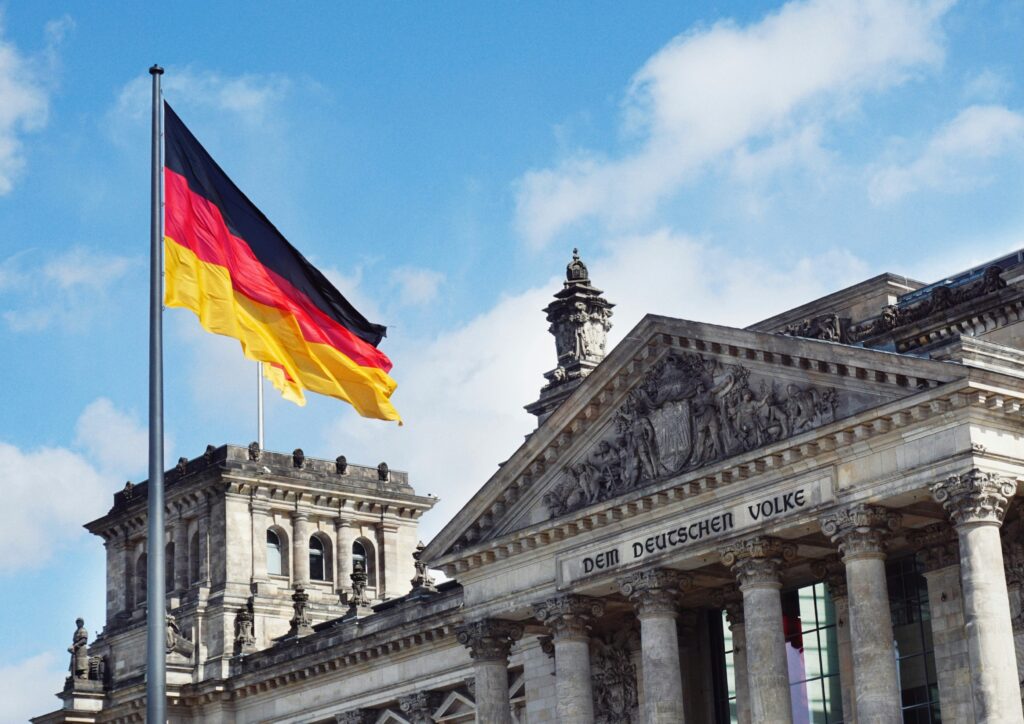Germany’s Elections: As Germany approaches its elections, just before the third anniversary of Russia’s invasion of Ukraine, former Ukrainian Foreign Minister Dmytro Kuleba urges Europe to acknowledge the growing Russian threat.
The War That Germany Overlooks
With the third anniversary of Ukraine’s war against Russia drawing near, Germany is preparing for a major election. Yet, Ukraine seems to be missing from the key topics in the political debates.
Dmytro Kuleba believes this is because many people simply don’t realize how quickly security can deteriorate. “You don’t think it can happen to you,” he said. “You look around, and Germany’s streets are peaceful. You don’t imagine that airstrikes could ever reach you.”
But Kuleba warns that this sense of security is fragile. “We never thought war could come to us either,” he explained. “It took a swift turn for Ukraine to find itself at war with Russia. People often only act when the danger is already at their doorstep.”
Kuleba acknowledged the significant changes Germany has gone through since 2020, when he took office during the pandemic. Back then, Germany didn’t play the same role in supporting Ukraine. However, by 2022, the government, led by the SPD-Greens-FDP coalition, became Ukraine’s second-largest supporter, behind only the United States.
The Controversy over Taurus Missiles – Germany’s Elections
Despite Germany’s growing support for Ukraine, Kuleba remains critical of Chancellor Olaf Scholz’s refusal to send Taurus missiles to Ukraine. He believes this decision overshadows the progress made.
“That’s the way politics works,” Kuleba explained. “People tend to remember what you didn’t do.” He was particularly frustrated by Scholz’s hesitation. When Foreign Minister Annalena Baerbock visited Kyiv in 2023, she had not approved the Taurus missile shipments, which Kuleba found baffling. “I don’t understand why we’re wasting time,” he said.
Even after resigning in September 2024, Kuleba still sees no substantial change on the matter. He believes Scholz’s refusal to act comes from a desire to prove that his decisions are final. “First, he said no to artillery and tanks. Now Ukraine has both,” Kuleba pointed out. “It’s unfortunate that he drew a red line here.”
For Kuleba, the pressing question now is whether Europe will take full responsibility. He warned that if Ukraine falls, Putin will inevitably turn his attention toward testing NATO’s resolve. “I’m not trying to scare you,” Kuleba emphasized. “We will survive. But Europe must act.”
Kuleba has long been critical of the West’s handling of Putin’s actions. “For 20 years, the West has failed to manage Putin. His goal is clear: conquer Ukraine and weaken the West.”
Kuleba’s Resignation and the Ongoing War – Germany’s Elections
In September 2024, Kuleba resigned from his position as Ukraine’s foreign minister but continues to stay active in academia. He currently teaches at both Harvard and Sciences Po, while also residing in Ukraine. His new role allows him to shape the perspectives of younger generations.
Kuleba believes that students are far more open-minded than many professors, who still hold on to outdated views, especially regarding Russia. “They cling to Cold War ideas,” he said.
His focus now is on shifting perspectives in global politics. “As a minister, you’re solving problems every day. Now, I address deeper issues: narratives, decisions, and policies,” Kuleba explained.
Although Kuleba has left office, the war continues to rage on in Ukraine. He recalls the chilling events of February 24, 2022, vividly. It was on that day that Russia launched its invasion of Ukraine.
“War forces clear decisions,” Kuleba said. “There’s no middle ground.” By late 2021, Kuleba had no doubt that Russia would soon invade Ukraine. That awareness gave him time to prepare for the conflict.
However, when he returned to Ukraine on February 25, 2022, two people advised him not to go back. They warned him that Ukraine was doomed. But Kuleba ignored their warnings.
“I crossed back into Ukraine on February 25,” he remembered. “I chose to fight. I have never doubted that choice.”
The Road Ahead for Ukraine and Europe
As Germany heads to the polls, the future of Europe’s role in the Ukraine conflict remains uncertain. Kuleba’s warnings about Europe’s responsibility in this crisis remain clear. The geopolitical situation continues to evolve, and with it, the stakes for Ukraine and the rest of Europe. Kuleba hopes that the upcoming election will help the German public and politicians understand the severity of the situation.
The fate of Ukraine and the balance of power in Europe may depend on the choices made in the upcoming elections. Kuleba’s message is simple: Europe must take the threat seriously, and act before it’s too late.
For more insights into European politics and the ongoing Ukraine conflict, visit Euro News 24.
